#marianne elliott
Photo
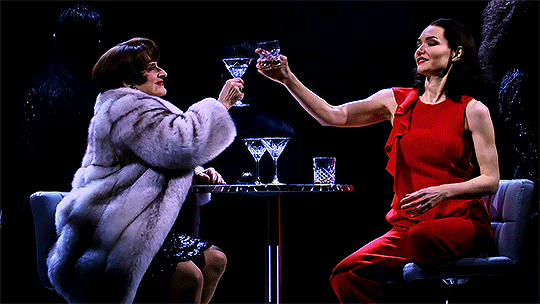


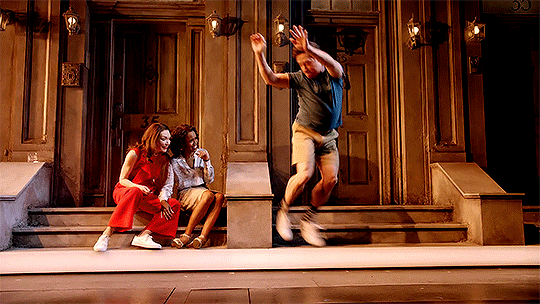
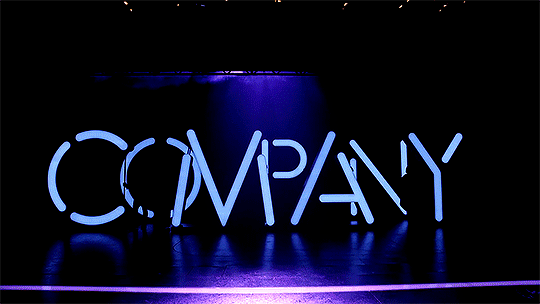
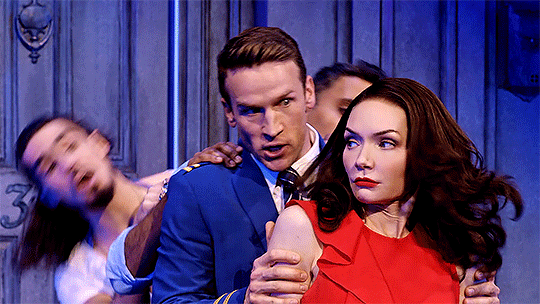




COMPANY
dir. Marianne Elliott
#broadwayedit#theatreedit#companyedit#katrina lenk#patti lupone#marianne elliott#nikki renee daniels#jennifer simard#matt doyle#etai benson#stephen sondheim#sondheimedit#*#theatre*#kl*#A R M S
292 notes
·
View notes
Photo

DONNA MCKECHNIE rehearsing "Tick-Tock"
for Stephen Sondheim's "COMPANY" (1970)
#donna mckechnie#stephen sondheim#george furth#hal prince#theater#theatre#musical#dance#art#company#broadway#music#70s#1970s#pbs#great performances#marianne elliott#dean jones#comedy#dancer#ballet#keeping company with sondeheim#gif
222 notes
·
View notes
Text

Poly Styrene
124 notes
·
View notes
Text
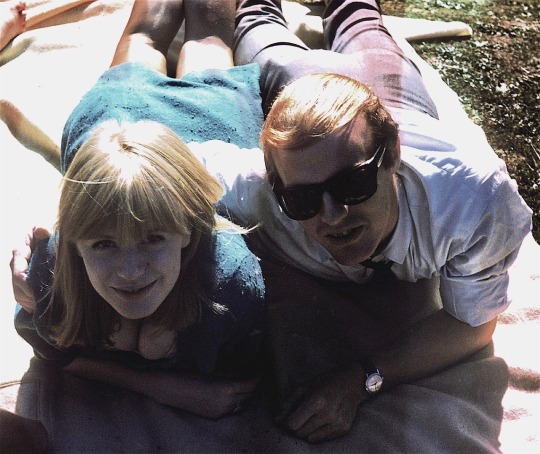
MARIANNE FAITHFULL and BOBBY ELLIOTT of THE HOLLIES. 1964.
#i've seen this pic many times and it's one of my faves#never forget that mari was the muse for the hollies' song 'carrie anne'#it was going to be called 'marianne' but they were too shy to use her name and didn't want to make it obvious#graham nash confirmed it in 1995 lmfao#marianne faithfull#bobby elliott#the hollies#1960s#60s#1964#non edits
75 notes
·
View notes
Text
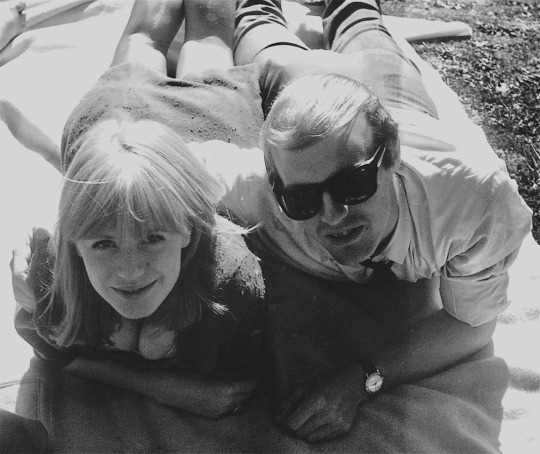
20 notes
·
View notes
Text
X-Ray Spex - Germfree Adolescents (1978)

X-Ray Spex - Germfree Adolescents (1978)
Poly Styrene
from:
"Germfree Adolescents" (LP)
[Expanded | 2005]
Punk | UK Punk | New Wave
JukeHostUK
(left click = play)
(320kbps)
Personnel:
Poly Styrene: Vocals
Jak Airport: Guitar
Rudi Thomson: Saxophone
Paul Dean: Bass
B.P. Hurding: Drums
Produced by Falcon Stuart / X-Ray Spex
Album Recorded:
@ Essex Studios
in London, England UK
during 1978
Album Released
on November 10, 1978
EMI Records
#X-Ray Spex#Poly Styrene#Germfree Adolescents#Marianne Elliott-Said#1970's#New Wave#Punk#UK Punk#EMI Records#B.P. Hurding#Paul Dean#Rudi Thomson#Jak Airport#Falcon Stuart
8 notes
·
View notes
Text
i’m not a straight woman so maybe i’m out of my lane but i cannot imagine in the year 2023 a straight woman saying she’d want to marry her gay best friend unless it was for tax benefits or health care
10 notes
·
View notes
Text
23 giugno … ricordiamo …
23 giugno … ricordiamo …
#semprevivineiricordi #nomidaricordare #personaggiimportanti #perfettamentechic
2022: Ernst Jacobi, attore e doppiatore tedesco. Attore attivo principalmente in campo televisivo e teatrale, tra cinema e – soprattutto – televisione, ha partecipato ad oltre un centinaio di differenti produzioni a partire dalla metà degli anni cinquanta, lavorando in vari film TV. (n.1933)
2021: Jackie Lane, attrice britannica Ha fondato un’agenzia di doppiaggio, Ad Voice. (n. 1947)
2019:…
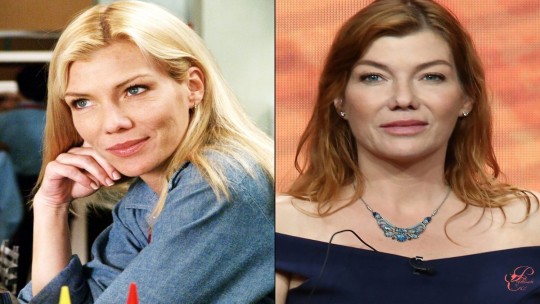
View On WordPress
#23 giugno#23 giugno morti#Adelbert Elliott Dexter#Al Northon#Alfio Caltabiano#Corinne Calvet#Dick Van Patten#Edu del Prado#Elliott Dexter#Ernst Jacobi#Gigi Rizzi#Hanne Hiob#Hanne Marianne Brecht#Jackie Lane#Lea Padovani#Magali Noël#Mathias Taube#Maureen O&039;Sullivan#Odile Versois#Peter Falk#Peter Michael Falk#Piero Lulli#Rosina Lawrence#Simonetta Zauli#Stephanie Niznik#William S. Hart#William Surrey Hart
2 notes
·
View notes
Text
At a production of angels in america for the first time and it’s so good that it’s sending me further into my Marianne Elliott hatred
2 notes
·
View notes
Text
I realize this is such a surface-level observation but in the original Company, 2.3 is Peter asking Bobby if he's ever had a homosexual experience and Bobby saying yes and Peter saying that he has too. in 2020 Company, the equivalent conversation in 2.3 is Susan revealing she's pregnant and Bobbie going, "oh, wow!". feminism! I love woman's rights... woman's rights to be pregnant and NOT BE GAY, definitely not be gay.
#no seriously Marianne Elliott has never met a lesbian woman over the age of 23.#company#i should be tagging it for normal people who don't go insane about this.#personal
6 notes
·
View notes
Text
Now that Sondheim is dead, the next Company revival better be gay as shit. Just fucking and sucking the entire time.
#tbh his defensiveness or weirdness about queer people is one of my least favorite things#no offense to him#full offense to marianne elliott
3 notes
·
View notes
Photo

CLAYBOURNE ELDER as "ANDY" peforming "Barcelona"
in "COMPANY" (2022)
Stephen Sondheim + Marianne Elliott + George Furth
#claybourne elder#stephen sondheim#george furth#marianne elliott#hal prince#company#musical#comedy#theater#theatre#broadway#music#art#dance#katrina lenk#andy#barcelona#patti lupone#keeping company with sondheim#gif#gay
98 notes
·
View notes
Photo




Rehearsals and Sitzprobe from Company (2018)
31 notes
·
View notes
Note
Hi! So this is gonna sound weird, but I’ve kinda been learning about Irish history backwards? Like, I started with the Troubles (bc of family involvement), then back to the 1916 rising which got me more interested in the people involved which took me further back and etc etc. I know I’ve been doing it “wrong” but I’m just starting to come up to the 1798. Do you happen to have any recommended readings or particular persons of interest to read? Any collections of primary sources would be more than welcome!
Secondary sources I would recommend:
The Year of Liberty by Thomas Pakenham - about the rebellion in general
The People's Rising by Daniel Gahan - about the rebellion in Wexford
The Summer Soldiers by ATQ Stewart - about the rebellion in Ulster
Wolfe Tone: Prophet of Irish Independence by Marianne Elliott - about Wolfe Tone
The Life and Times of Mary Ann McCracken by Mary McNeill - technically this is just about Mary Ann but I think it's pretty good for Henry Joy McCracken too because there aren't many biographies of him
Orangeism in Ireland and Britain 1795 - 1836 by Hereward Senior - obviously exercise caution on whether or not you think you can mentally handle this subject but book about loyalism during 1798
Castlereagh: War, Enlightenment, and Tyranny by John Bew - about Lord Castlereagh
2 things that I would also recommend reading about for context are the French Revolution and the British radical movement of the late 18th century. for the French Revolution 1 book I would say is good is Liberty or Death by Peter McPhee and for the British radical movement... the book The English Jacobins by Carl B Cone does a good enough job
Primary sources:
The Memoirs of Theobald Wolfe Tone by Theobald Wolfe Tone - title is pretty self explanatory. It's Tone's account of his own life + his diary
The United Irishmen, Their Lives and Times by RR Madden - this is considered to be the 1st history of the rising & was written with the help of many people who lived through it, so it includes a lot of first hand accounts. HOWEVER. beware that Madden was your archetypical mid 19th century Catholic Irish nationalist and the bias created due to that shows through in every single part of these books
Memoirs of the different Rebellions in Ireland by Sir Richard Musgrave - this is another very early history of the rising, also written with the help of people who lived through, also including a lot of first hand accounts. HOWEVER. Musgrave is like Madden's Orange counterpart in that this book is also wildly biased and should also be read with a degree of caution
Personal Narrative of the "Irish Rebellion" of 1798, Sequel to Personal Narrative of the "Irish Rebellion" of 1798, and History and Consequences of the Battle of the Diamond by Charles Hamilton Teeling - 3 accounts of politics in Ireland in the 1790s written by someone who as a young man led the Catholic paramilitary the Defenders
The Drennan letters (a collection of letters that Belfast doctor William Drennan and his sister, Martha McTier, wrote to each other between the 1770s and 1820s), if you can find them, are another great primary source on both the United Irishmen & on what life was like back then in general, as are the McCracken letters, which I know are available free online somewhere I just can't remember where exactly I got the pdf from
There are a lot of them but if you're interested in primary sources you might also read some of the political pamphlets/books that were going around back then -- the most famous that come to mind in this context are Wolfe Tone's Argument on Behalf of the Catholics in Ireland, Thomas Paine's The Rights of Man, and Edmund Burke's Reflections on the Revolution in France but there are wayyy more than that and at least some of them are on the internet archive
194 notes
·
View notes
Text
I agree with all the posts out there talking about the Persuasion "adaptation's" character assassination. From what we can see (though I fully admit trailers aren't always true to the movie), Anne is not the calm, reserved, rational, reliable, sensible, and above all self possessed woman of the books, but rather some kind of modern construct built from Austen's more popular women like Lizzie and Emma. (In reality, Anne, Elinor, and Fanny Price would be on a blanket sipping tea while Lizzie, Emma, Catherine, and Marianne were off vexing men and making trouble.)
One thing I haven't seen mentioned, though, is that from the context of the times, Anne was not just being swayed because she valued her family's continued support and Lady Russell's opinion, but because Lady Russell's concerns were real and frightening. Marrying Wentworth *before* he made his fortune was an *incredible* risk to her safety and wellbeing. Throughout the book, we see countless manifestations of "what if" scenarios:
Mr. Elliott as an example of how she likely would've been disowned by her family if she'd married Frederick anyway
Anne's old school friend Mrs. Smith as an example of her life if she'd married anyway, been disowned, and Frederick had died or become injured enough to not be able to properly support her
Benwick and Fanny Harville as an example of what might have happened if she'd kept the engagement but agreed not to marry him until he'd made enough to support them
Her sister Mary's comfortable life as an example of what she might have had if she'd said yes to Charles Musgrove.
Louisa Musgrove as an example of how Anne might have acted if she'd been less risk averse and less prudent in her youth.
You can argue the validity of Anne's situation compared to these manifestations (likely Lady Russell would have risked angering Sir Elliott and taken Anne in with the idea of an eventual reconciliation), but there are countless other examples throughout the book. They are meant to reinforce the point that Anne is reconciled to her own actions, much as she might regret them.
This is not a book where Anne blames herself or her family. She did the "right" thing by breaking it off with Frederick. She just now wishes with her whole being that she hadn't done the "right" thing.
"... but Anne, at seven-and-twenty, thought very differently from what she had been made to think at nineteen. She did not blame Lady Russell, she did not blame herself for having been guided by her ... She was persuaded that under every disadvantage of disapprobation at home, and every anxiety attending his profession, all their probable fears, delays, and disappointments, she should yet have been a happier woman in maintaining the engagement than she had been in the sacrifice of it."
And later, to Frederick:
"If I was wrong in yielding to persuasion once, remember that it was to persuasion exerted on the side of safety, not of risk."
In hindsight, she sees all the risks and all the examples of her possible life choices, and thinks now it would have been worth the pain and risk. To be disappointed by fate would have been far better than the constant estrangement from the man she has loved for eight years.
Anne sees all the possibilities of how her life might have played out in the people around her, and she accepts it.
And the best part is that Frederick acknowledges that Anne was right to be cautious.
"He had imagined himself indifferent, when he had only been angry, and he had been unjust to her merits, because he had been a sufferer from them ... He had learnt to distinguish between the steadiness of principle and the obstinacy of self-will, between the darings of heedlessness and the resolution of a collected mind ...
Fredrick knew he'd been resentful and proud. And he owns up to his mistake of thinking ill of her for so long. He admits he was his own worst enemy when it came to his happiness with Anne. And Anne reinforces this with her words to him near the end:
I have been thinking over the past ... and I must believe that I was right, much as I suffered from it, that I was perfectly right in being guided by [Lady Russell] ... Do not mistake me, however. I am not saying that she did not err in her advice. It was, perhaps, one of those cases in which advice is good or bad only as the event decides ...
Anne is calm. She follows her conscience. She is sensible and, yes, resolute when she needs to be. She's amazing as she is and doesn't need to be made into something she's not.
She is appealing because of who she is, and it's also why she's my favorite Austen woman. To divorce Anne of these things is to create a new character and inherently alter the story.
So call it something else. Say it's "inspired by" Persuasion if you want. But don't pretend that you can alter the main character's very personality and still call it Persuasion.
#persuasion#jane austen#i haven't gone this deep into literary critique since my Brit lit days#but Anne deserves better#and she also deserves to be understood in the context of her times#she did what she thought was right#she regretted it#but she never blamed herself or her family#it simply was what it was#time for another read through of the book i guess#not my anne#okay i might be done now#but probably not lbr#still salty#mine
2K notes
·
View notes
